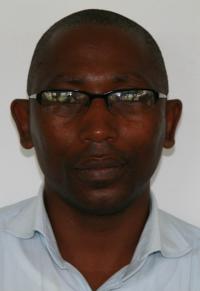Posted on February 14, 2011

For instance if we advocate for the repositioning of intangible heritage and its repositioning as an instrument to advance the transformation of heritage landscape cannot only be left in the hands of few individuals since culture is collectively and community owned. This implies that the involvement of basic civil society institutions like the families, cultural communities and organic intellectuals, youth and elders is important to make sure that they guard against the misuse of intangible heritage.
It is also important to note that the intangible heritage as a sub-text of culture has been a pillar of our cultural communities from time immemorial. Hence there are still communities that continue to embrace and appreciate the work and role played by intangible heritage in re-building fallen communities, molding characters and construction of world outlook. On the other side you still have communities who long for the practice of forgotten traditions due to the fact that such traditions were cornerstones and foundation of unity in the communities where they were observed.
The OHASA is one of the official institutions is this country that seek to preserve, protect and promote the intangible heritage in particular oral history which is the integral part of intangible heritage. Just for the past five years beyond its existence, OHASA has been hosting oral history conferences in all the provinces of this country. The mandate of OHASA is informed by the understanding that the oral history as a subtext of intangible heritage plays a significant role in transmitting the cultural values, norms, beliefs and practices that bided families and communities together. It is in this context that intangible heritage should be preserved, protected and promoted because through its practice we all begin to realize and understand the rare wisdom of our organic intellectuals in articulating the age old traditions and knowledge that is still needed by the modern communities that exist in a changing and global world.
As OHASA executive, we took a conscious decision to involve members of local communities, young learners, elders and teachers in the oral history conferences. The aim is to populate the meaning, significance and value of ( oral history ) intangible heritage and position it in the minds of young people as a life compass to understand the cultural imperatives that serve as a cornerstone of their identity.
The young people have to be made to understand that the practice of intangible heritage must be viewed as a guiding principle of our lives and when that is done our young people will begin to understand the role of intangible heritage when it comes to innovation of our collective wisdom. This implies that when we are sensitized about practicing or observing intangible heritage that is not a call to primitiveness but must be seen as strategy to entrench our age old cultural wisdom and knowledge.
As South Africans through OHASA as a platform to express our appreciation for our collective intangible heritage we need to come up with conference deliberations that will inform planned and existing policies on the preservation, protection and promotion of intangible heritage. For instance in South Africa the policies are reviewed, changed due to the fact that there policies that were conceptualized, planned and executed without the involvement of those who will be affected by those policies. The same predicament can be found in the department of arts and culture. And such predicament in the context of intangible heritage can be avoided only when the custodians of intangible heritage have been made part of process that craft policies that will protect their own heritage.
As OHASA we fully support the preservation, protection and promotion of intangible heritage in South Africa and we further commit ourselves to that cause since it is about constructing a nations identity. In fact we had long identified that through the promotion of intangible heritage, nations unity and social cohesion can be achieved and differences can be celebrated and similarities be embraced and South Africa will be a real rainbow nation and live up to its meaning.
However the promotion of intangible heritage cannot be realized if there is no funding commitment not only from the government but from the private sector which must have a role to play in the funding and promotion intangible heritage in South Africa. It is a fact that individuals, communities and organization have in the past few years embarked in the oral history projects which are community based trying by all means to record the vanishing voices and cultures but they do not have enough funds to sustain projects of that significance. As OHASA we call upon institutions and organizations to sustain these projects by providing a funding and support. For instance any resources that could make it more easier for learners to conduct community oral history possible will be appreciated as that will make both the funders and the recipients good and responsible South African citizens. It will be good to see a funding channeled to intangible heritage projects which are community based rather than giving funding to people who will write PhD`s that will not serve the very communities but their self interests. And only if that is done the knowledge about intangible heritage will not be left in the hands of historians, academics and cultural practitioners but to communities themselves.
Vuyani Gweki Booi is the Deputy President of Oral History Association of South Africa ( OHASA ). He writes in his personal capacity.